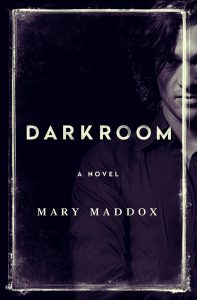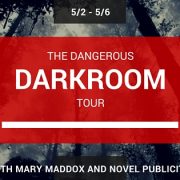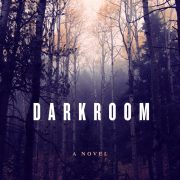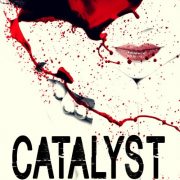The following is an excerpt from Hometown Boys, a work in progress featuring Kelly Durrell. Kelly returns to the Midwestern town where she grew up to attend the funeral of her aunt and uncle. They’ve been murdered by her ex-boyfriend from high school, Troy Ingram, a meth addict destroyed by chronic drug abuse. Kelly is unwillingly drawn into the case when Troy’s lawyer asks her for help. The lawyer has evidence that Troy was coerced into committing the murders, but Troy refuses to talk about it. The lawyer hopes Kelly can persuade him to open up and reveal who wanted her aunt and uncle dead—and why.
In this flashback she remembers meeting Gene Countryman, one of Troy’s friends from their high school days. Now a successful businessman, Gene may not be as respectable as he appears.
In the dark he became a stranger
Certain moments stayed frozen in her memory. Like photographs, she thought with a pang. She warded off thoughts of Day Randall, her murdered friend and a talented photographer, whose body was still missing. Memories decayed faster than photographs. A lot faster. But the vital details, the ones whose emotional charge held the memory in place—those never changed.
It was her second date with Troy. Or maybe third. That unimportant detail had decayed. He picked her up down the block from Steph’s house, where she was supposed to be sleeping over. He pulled to the curb in a pumpkin colored Buick, a carriage waved into existence by a fairy godmother with a twisted sense of humor. The bucket seat sagged beneath her weight. Smells haunted the interior—marijuana and cigarette smoke and something like vomit. The engine made odd choking noises, and when they headed out of town, Kelly worried that the car might break down and leave them stranded in the country.
“What’s wrong?” he asked. “You look uptight.”
“No, I’m fine.” She peered beyond the reach of the headlights and ignored the uneasiness that hollowed her out. “Where are we going?”
 “You’ll see.” In the dark he became a stranger. He could pull the car to the side of the road, strangle her, and roll her body into a cornfield. For a moment she wanted to go back to Steph’s house, pop some popcorn, and watch TV. Then she summoned the image of his lucid blue eyes and knowing smile, a smile that intimated life was a joke and nobody got it but the two if them. He was dangerous, but not to her.
“You’ll see.” In the dark he became a stranger. He could pull the car to the side of the road, strangle her, and roll her body into a cornfield. For a moment she wanted to go back to Steph’s house, pop some popcorn, and watch TV. Then she summoned the image of his lucid blue eyes and knowing smile, a smile that intimated life was a joke and nobody got it but the two if them. He was dangerous, but not to her.
Somewhere along the highway leading to Uncle George’s place, Troy turned onto a side road. Gravel crunched under the Buick’s tires, and the headlights played over milkweed and a drainage ditch. Treetops emerged from the darkness of the sky, then windows illuminated with bluish light winked into view. She couldn’t see much else of the house, only the silhouette of high eaves and a front porch, its roof slumped with age. The Buick jolted over a rutted driveway and arrived in a small clearing where several other vehicles were parked. Smothered music drifted from the house.
“What is this?” Kelly asked.
“What’s it look like?”
A party in the country. Obviously. Yet, for reasons she couldn’t pin down, the place seemed furtive and sinister.
Troy got out of the Buick, slammed the door, and strode toward the porch. Kelly scrambled to catch up, so young and smitten that she accepted his rudeness. And he set the pattern. The boyfriends who followed him differed only in degree—until she met Cash, whose old-fashioned father taught him to open doors for women, not because they were weak or helpless but out of respect. Kelly wondered now why she’d valued herself so little, why she’d taken so long to move beyond her teenage insecurity.
I am the passenger
Inside the house Iggy Pop crooned, “I am the passenger, I ride and I ride . . . ,” the song’s bass notes booming like distant thunder. The raw smell of mud drifted from a field. They stood for at least a couple of minutes. She was fretting that no one had heard Troy knock when the door swung wide. A skinny man stood in the threshold. His hair ebbed from his domed forehead and hung in greasy dishwater strands to his shoulders. Later she found out he was twenty-eight, but lines scored his face from his nostrils to the corners of his mouth. His irises, almost colorless, were ground zero in a bloodshot explosion so intense that he seemed about to weep blood.
Troy leaned forward and said something. The skinny man’s gaze jumped frenetically between her and Troy before he finally nodded.
Troy grabbed her upper arm and pulled her toward the door. “Say hi to Gene.”
She mumbled a hello.
Gene raked his fingers through the stringy hair. “Troy says you’re cool. Is that right? He’s not full of shit, is he?” He sounded like a clarinet with a bad cold.
“No. I mean, I am. Cool.”
“How old are you?”
“Eighteen.” She fudged her age by fifteen months. Lying made her nervous, but he wouldn’t ask unless he needed to hear the magic number.
Gene’s mouth twitched. “Yeah, right.” But he let them in.
As Troy shepherded her through the entryway, she noticed a mahogany hall tree, the varnish on the bench top cracked and bubbled where liquid—someone’s drink, maybe—had been spilled and left. To Kelly, who loved old furniture, it seemed like desecration.
They went into a front room where a dozen or so partiers lounged on a couch and chairs and huge pillows scattered over the floor. Everyone there was older than her. Some were way older—not quite her parents’ age, but almost. Troy dropped into a chair and patted on its wide upholstered arm, indicating that Kelly should sit there. Pretending not to notice, she sat cross-legged on a Persian rug. Several burns pocked its glossy pile. She stroked the rug with her fingertips as if to comfort it.
Most people don’t feel much of anything
 A nearby table was also scarred with burns and littered with an overflowing ashtray, a couple of metal pipes, and the leftover butts of smoked joints. “Look at them fat roaches,” Troy said. “Can’t let ‘em go to waste.” He picked out the longest roach and held it to his lips. He removed a book of matches from his T-shirt pocket, opened it, and struck a match—all with one hand in a single fluid motion. The feat of dexterity had impressed her at sixteen. Remembering it at forty, she wondered how many hours he’d wasted perfecting the trick.
A nearby table was also scarred with burns and littered with an overflowing ashtray, a couple of metal pipes, and the leftover butts of smoked joints. “Look at them fat roaches,” Troy said. “Can’t let ‘em go to waste.” He picked out the longest roach and held it to his lips. He removed a book of matches from his T-shirt pocket, opened it, and struck a match—all with one hand in a single fluid motion. The feat of dexterity had impressed her at sixteen. Remembering it at forty, she wondered how many hours he’d wasted perfecting the trick.
He sucked on the stub and blew out acrid smoke, then offered the smoldering butt to Kelly. She shook her head. He gave her the knowing smile. “Come on, don’t be a narc.”
She pinched the roach gingerly, its heat a millimeter from burning her fingertips, and brought it to her lips. Maybe if she pretended . . . She barely inhaled, but she sucked in the smoke anyway. Her throat closed like a fist, and pressure backed up in her chest. She hacked and coughed loud enough to be heard over the music. An overweight woman guffawed. A man with a wispy goatee snickered. Kelly felt trapped in a cartoon where it was her fate to do one stupid thing after another.
She braced for anger or disgust from Troy, but he asked, “Are you okay? Want something to drink?” She might have started loving him at that moment. It was a slight kindness. Basic courtesy. Yet . . .
He left the room and quickly returned with a can of soda. It was already open and not cold enough to have come straight from the fridge. She guessed someone—Troy, she hoped—had already drunk from the can. She didn’t care. Its fizz soothed her parched mouth and throat.
When he passed her a lighted joint, she took a drag to make him happy and gave it back. A minute later, he offered the joint again. She shook her head. “I’m new at this. In case you haven’t guessed.”
Troy smiled and stroked her cheek. “You’ll be okay. Most people don’t feel much of anything their first time smoking.”
She took another drag. And a few more.
She leaned against the chair where he sat. She listened to Iggy Pop snarl the lyrics of “Lust for Life.” The music had a depth and shape she’d never experienced before. She pictured the drummer twirling his drumsticks like batons and pounding drums the size of trampolines. The silver pinwheels of the drumsticks spun before her eyes. She bounced on a giant trampoline, soaring high—higher with each bounce, more weightless. Time froze. She became the silvery sticks between the drummer’s fingers. Spinning and spinning. Her stomach pitched and her mind reeled. Vomit soured her throat. She needed a toilet before—
The darkness in their faces
Hand clamped to her mouth, she staggered down a dim hallway into the harsh fluorescence of the kitchen. Several men leaned against an old-fashioned oak dining table and a counter cluttered with beer cans and gallon jugs of wine. The men turned and stared at her. Something about their faces. A darkness.
Gene Countryman held a small metal pipe between his thumb and fingers. A pistol was jammed into the waistband of his jeans, snug against the small of his back. Had it been there when he let them in? Kelly struggled to think. Many of the grownup men she knew, her father included, owned guns and hunted deer and birds. None of them stuck pistols down their pants like a movie gangster. Show off, Kelly thought, but she couldn’t let go of the darkness in their faces.
 Gene noticed her, and his mouth curled in a sarcastic hook. He nodded toward a door. “Over there. And try not to miss.” Scattered laughter chased her into the tiny windowless bathroom.
Gene noticed her, and his mouth curled in a sarcastic hook. He nodded toward a door. “Over there. And try not to miss.” Scattered laughter chased her into the tiny windowless bathroom.
She raised the toilet seat and lowered her head over the bowl. Someone had peed and forgotten to flush, and shit smeared the porcelain just above the water line. Her stomach contracted. She’d thrown up her half-digested dinner, and the sour reek had triggered more vomiting.
All these years later, she carried an image of Gene Countryman’s gun in her memory—the black textured plastic of its handle and the way it wiggled when he straightened his back, as if trying to escape from his too-tight waistband.
Later, driving back into town, Troy had reassured her. Lots of people barfed the first time they smoked and—who knows?—the weed could have been cut with something.
“Like what?”
“Who knows? Meth or angel dust.”
Kelly never wanted to smoke weed again, and he would keep insisting. She hoped she could say no to his impish smile, his blue eyes shaded by dark lashes. It didn’t matter. After the way she acted, he wouldn’t ask her out again.
Only he did. And Kelly said yes for the stupidest of reasons. He was giving her another chance after she embarrassed him. How could she do any less for him?
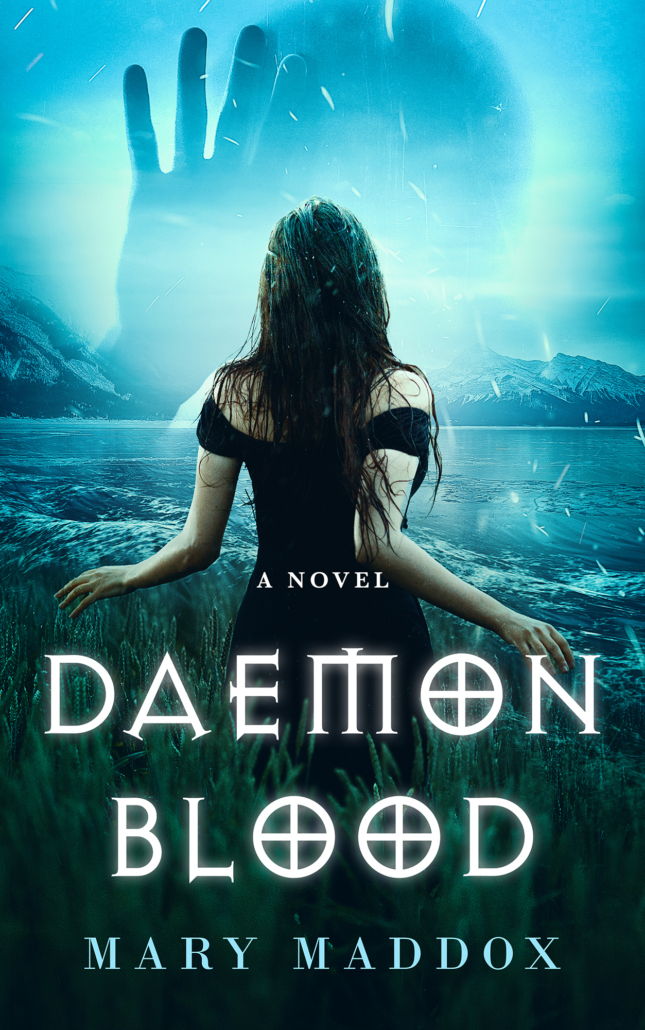

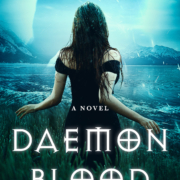
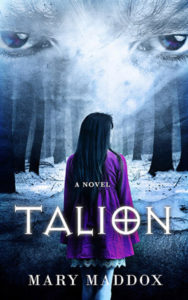
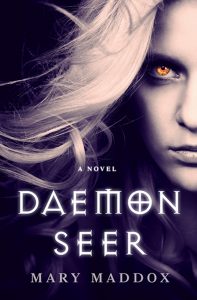

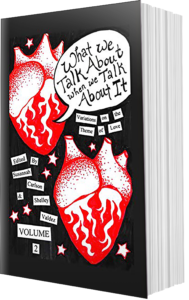
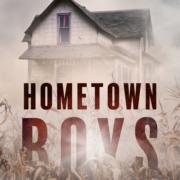
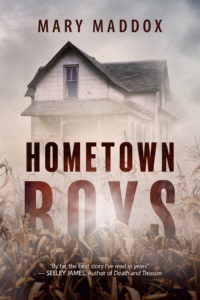
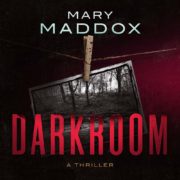
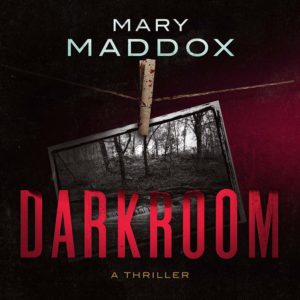

 “You’ll see.” In the dark he became a stranger. He could pull the car to the side of the road, strangle her, and roll her body into a cornfield. For a moment she wanted to go back to Steph’s house, pop some popcorn, and watch TV. Then she summoned the image of his lucid blue eyes and knowing smile, a smile that intimated life was a joke and nobody got it but the two if them. He was dangerous, but not to her.
“You’ll see.” In the dark he became a stranger. He could pull the car to the side of the road, strangle her, and roll her body into a cornfield. For a moment she wanted to go back to Steph’s house, pop some popcorn, and watch TV. Then she summoned the image of his lucid blue eyes and knowing smile, a smile that intimated life was a joke and nobody got it but the two if them. He was dangerous, but not to her. A nearby table was also scarred with burns and littered with an overflowing ashtray, a couple of metal pipes, and the leftover butts of smoked joints. “Look at them fat roaches,” Troy said. “Can’t let ‘em go to waste.” He picked out the longest roach and held it to his lips. He removed a book of matches from his T-shirt pocket, opened it, and struck a match—all with one hand in a single fluid motion. The feat of dexterity had impressed her at sixteen. Remembering it at forty, she wondered how many hours he’d wasted perfecting the trick.
A nearby table was also scarred with burns and littered with an overflowing ashtray, a couple of metal pipes, and the leftover butts of smoked joints. “Look at them fat roaches,” Troy said. “Can’t let ‘em go to waste.” He picked out the longest roach and held it to his lips. He removed a book of matches from his T-shirt pocket, opened it, and struck a match—all with one hand in a single fluid motion. The feat of dexterity had impressed her at sixteen. Remembering it at forty, she wondered how many hours he’d wasted perfecting the trick. Gene noticed her, and his mouth curled in a sarcastic hook. He nodded toward a door. “Over there. And try not to miss.” Scattered laughter chased her into the tiny windowless bathroom.
Gene noticed her, and his mouth curled in a sarcastic hook. He nodded toward a door. “Over there. And try not to miss.” Scattered laughter chased her into the tiny windowless bathroom.
